Is the Australian Economy out of the woods?
It was pleasure to welcome our esteemed clients and guests to our economic forecasting conference in Sydney, and online.
Sign up for a free trial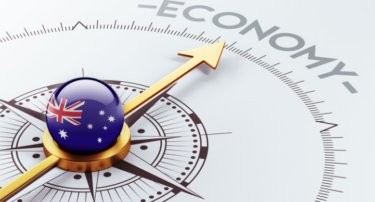
Oxford Economics set the stage for the year ahead, at our inaugural Australia Economic Outlook Conference, in Sydney on Tuesday, 17th September and Online on Tuesday, 24th September
Throughout the day, our line-up of speakers delivered a wealth of insights, focusing on uncovering opportunities in the global economy and major markets. Oxford Economics Australia’s Managing Director, David Walker, set the stage with a thought-provoking introduction, providing a clear overview of the session. This was followed by our experts discussing key topics such as significant elections, geopolitical volatility, policy changes, and Australia’s pathway towards achieving net-zero emissions.
The conference was filled with insightful discussions, dynamic exchanges, and innovative perspectives on the evolving economic landscape. Speakers explored both the challenges and emerging opportunities, ranging from city-specific economic trends to potential shifts in industrial activities, as well as the immediate and long-term implications of funding the climate transition.
The presentations came together to provide a comprehensive view of the economy, highlighting both the near-term obstacles and long-term possibilities in addressing economic uncertainty.
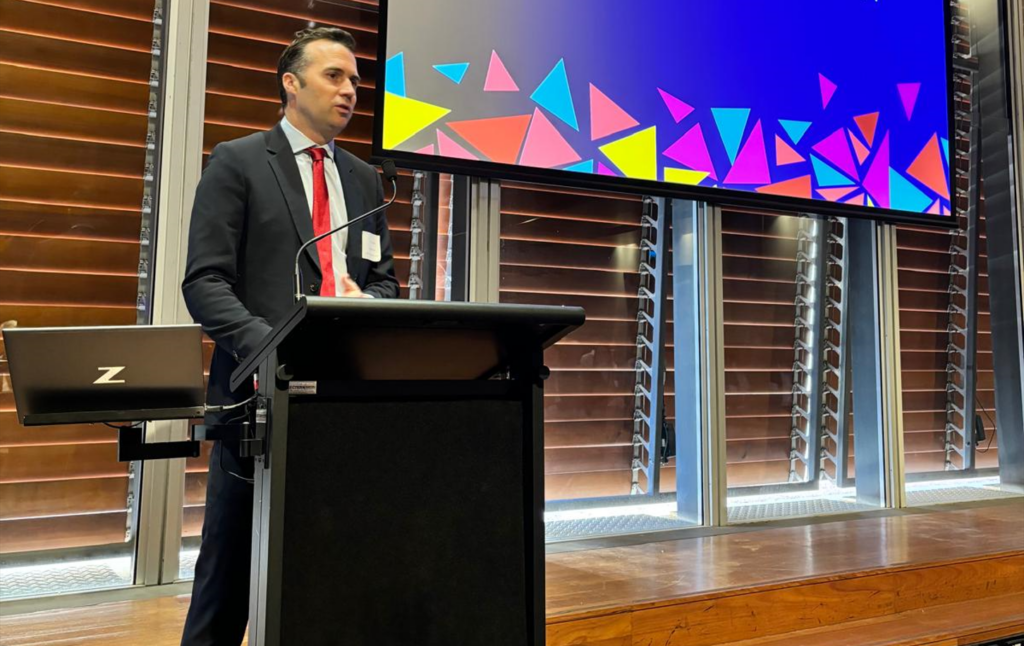
The economic outlook for Australia: The key global trends shaping Australia’s future
The Australian economy is set to be buffeted by a diverse set of global, market shifting forces,” said Langcake. “The rest of the year will see key elections and possibly new policy directions in major trading partner economies, headlined by the US election. Further afield, policymakers are grappling with finding optimal policy responses in economies facing larger and more frequent supply shocks.”
Oxford Economics believes a Trump victory would provide equity markets with a short-lived sugar hit. But policies to limit trade and population growth will ultimately limit the US’ potential growth rate. In either event, direct impacts on the Australian economy are expected to be small.
“The impacts of AI adoption are one of the major factors behind our optimistic outlook for the US economy,” said Langcake. “Other advanced and services-oriented economies such as Australia are relatively well placed to benefit from a productivity boost, but the impacts will be smaller for later adopters.”
Finally, goods inflation is highly correlated globally, according to Oxford Economics.
“Trade disputes that push production away from lowest cost economies are likely to increase inflation volatility and potentially interest rates in the medium term,” said Langcake. “Climate risks pose similar threats and are taking an increasing role in central banks’ planning.”
Download the presentation deck here
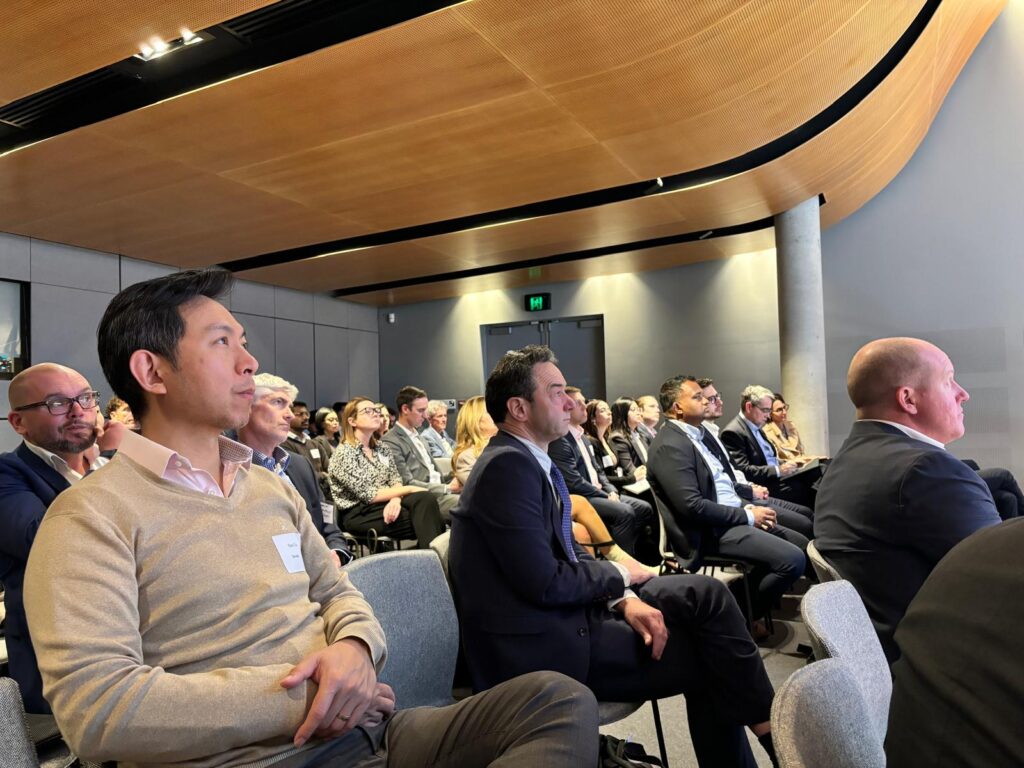
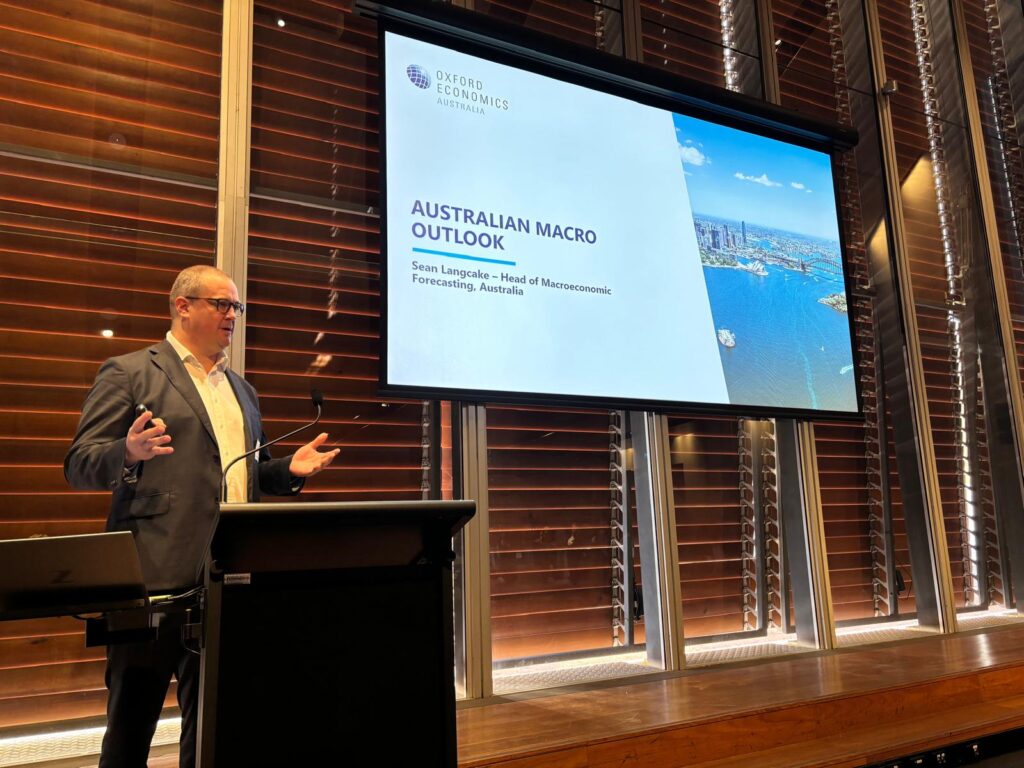
Trade in Turbulent Times: Adapting to Geopolitical Volatility
“Global Trade has been shaken by several headwinds this year including supply chain disruptions and geopolitical tensions. While some of these headwinds have peaked others are still looming large,” said Ben Udy, Lead Economist, Macro Forecasting and Analysis, Oxford Economics Australia.
While the US has reduced its direct trade reliance on China, its indirect exposure is less clear as many exporters have diverted trade through third-party countries.
“We suspect global shipping costs have reached a peak, but even if they surprise us and rise further, we expect the impact on inflations to be small.,” said Udy..
Download the presentation deck here
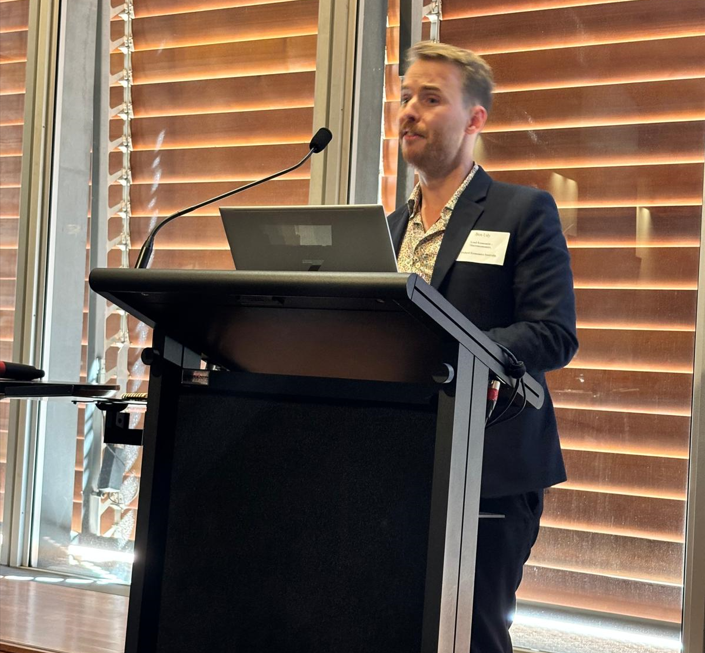
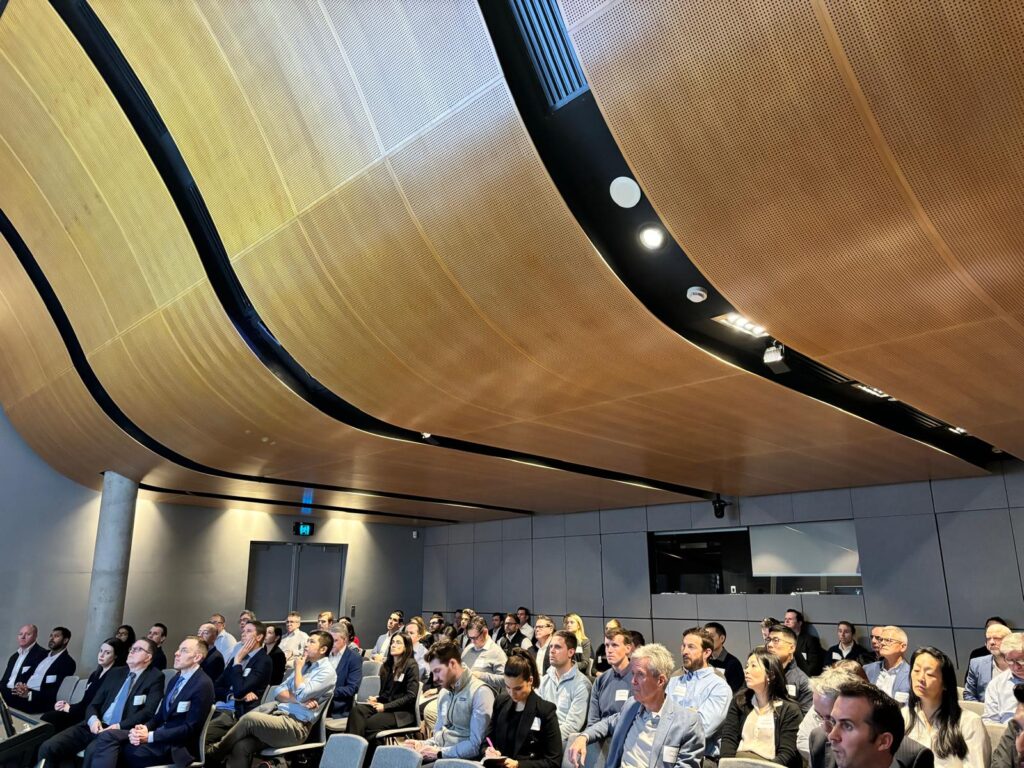
Climate change: Australia’s journey to net zero and its economic implications
“Australia’s road to net zero is proving to be bumpy,” said Kristian Kolding, Head of Consulting, Oxford Economics Australia. “Over the last six months we’ve seen the first auction of the Capacity Investment Scheme, major policy announcements towards a Future Made in Australia and significant uptake of grants to decarbonise hard to abate sectors.
“But at the same time, we’re emitting record levels of emissions from transport and appear to have re-ignited the ‘climate wars’ as the Coalition pushes for the rollout of nuclear energy to supplement renewables.”
“Our baseline forecast suggests we’re broadly on track to hit our 2030 climate target to reduce emissions by 43 per cent relative to 2005 levels. That said, achieving net zero by 2050 remains aspirational as opposed to a most likely outcome.”
Carbon conscious land use and renewable electricity is set to drive the green transition to 2030, but the path to decarbonising transport and industry remains shrouded in uncertainty.
“That’s ok for now, but clarity will be required sooner rather than later to set a credible 2035 emission target and create an equitable and manageable transition to net zero by 2050,” said Kolding.
Download the presentation deck here
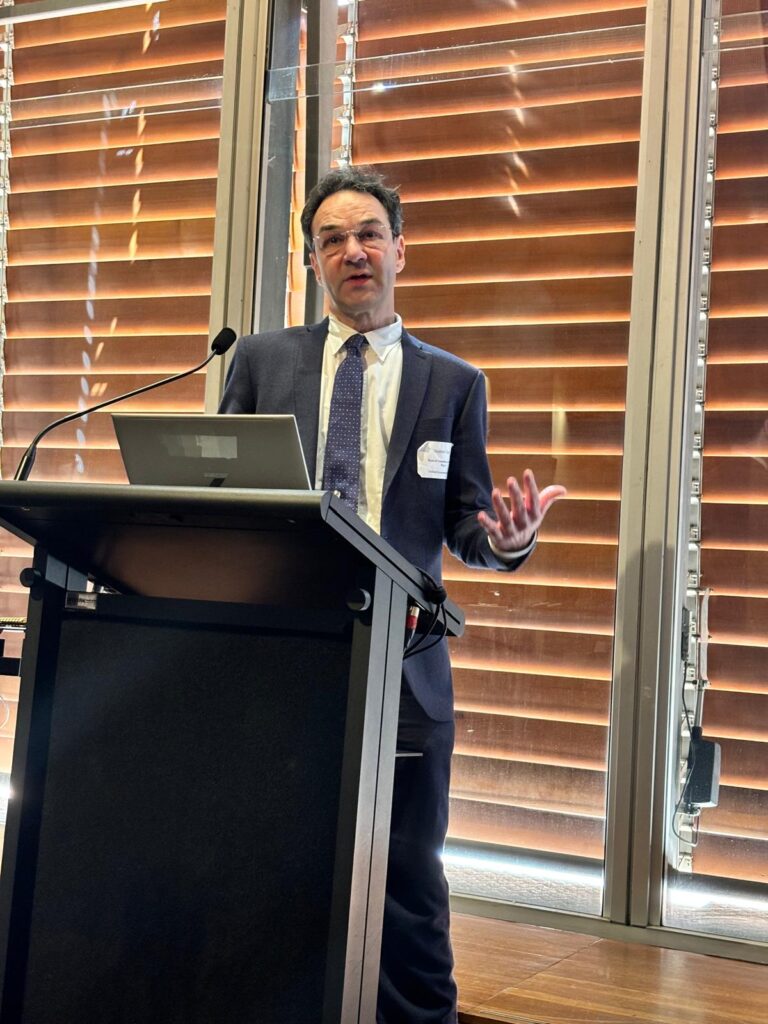
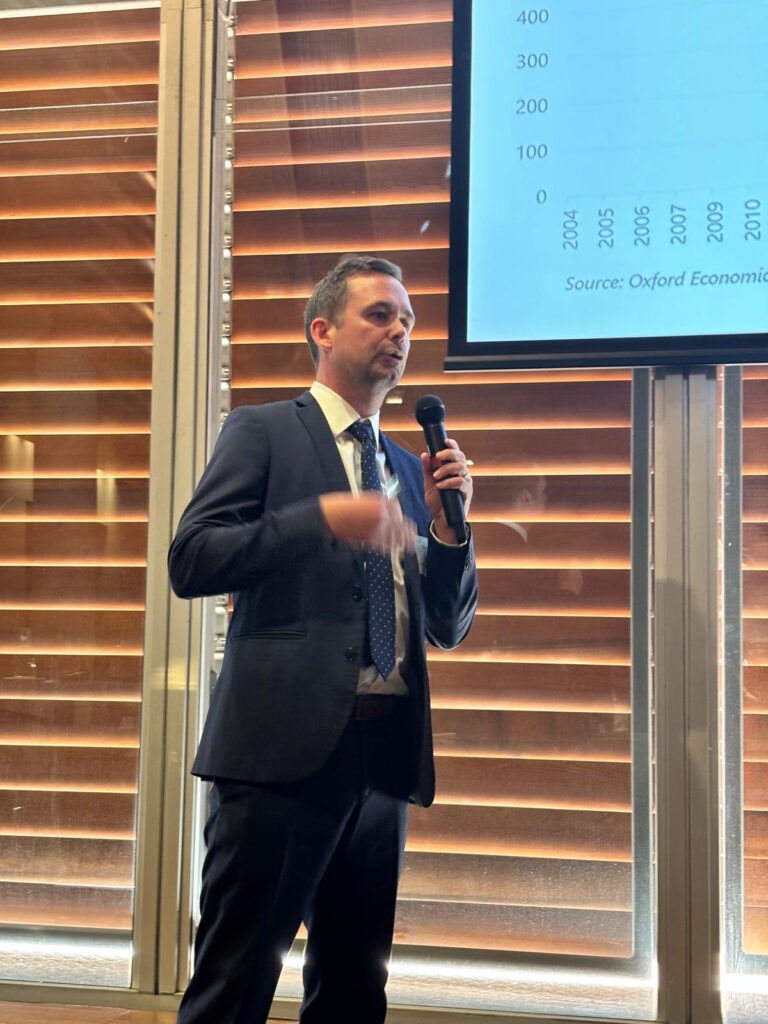
Preparing for Expanded Financial Disclosure: Assessing Your Scope 3 Carbon Emissions
Oxford Economics Australia believes there are plausible and relevant futures where the green transition is achieved ahead of schedule and temperatures increases remain well below 2 degrees, but there are also significant risks of delays which results in a significant warmer and more volatile environment in years to come.
“We applaud the recent amendment to the Australian Sustainability Reporting Standards to require businesses to describe the transition risks and opportunities for their business in a net zero future as well as the physical challenges associated with a warmer and more volatile scenario.”
Beyond climate scenarios, the introduction of sustainability reporting standards is leading to a greater focus on Scope 1,2 and 3 emissions, which should further drive fundamental shifts in industries across the country as businesses look to avoid financial repercussions.
“Measuring scope 3 emissions will be the most challenging of these requirements as companies will need to overcome data limitations from their supply chain and in the way consumers use their products,” said Andrew Tessler, Head of Economic Impact Analysis at Oxford Economics. “Big businesses and heavy polluters will be required to adhere to the Australian Sustainability Reporting Standard from January 2025, with smaller businesses being included over the following two years.”
Download the presentation deck here
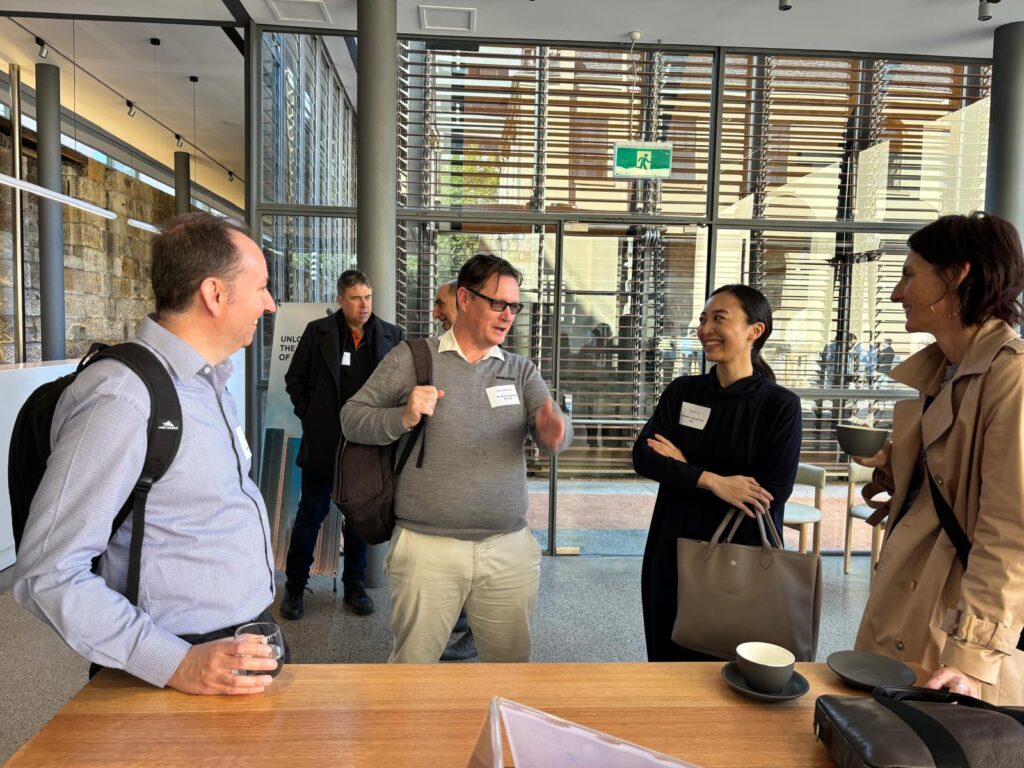
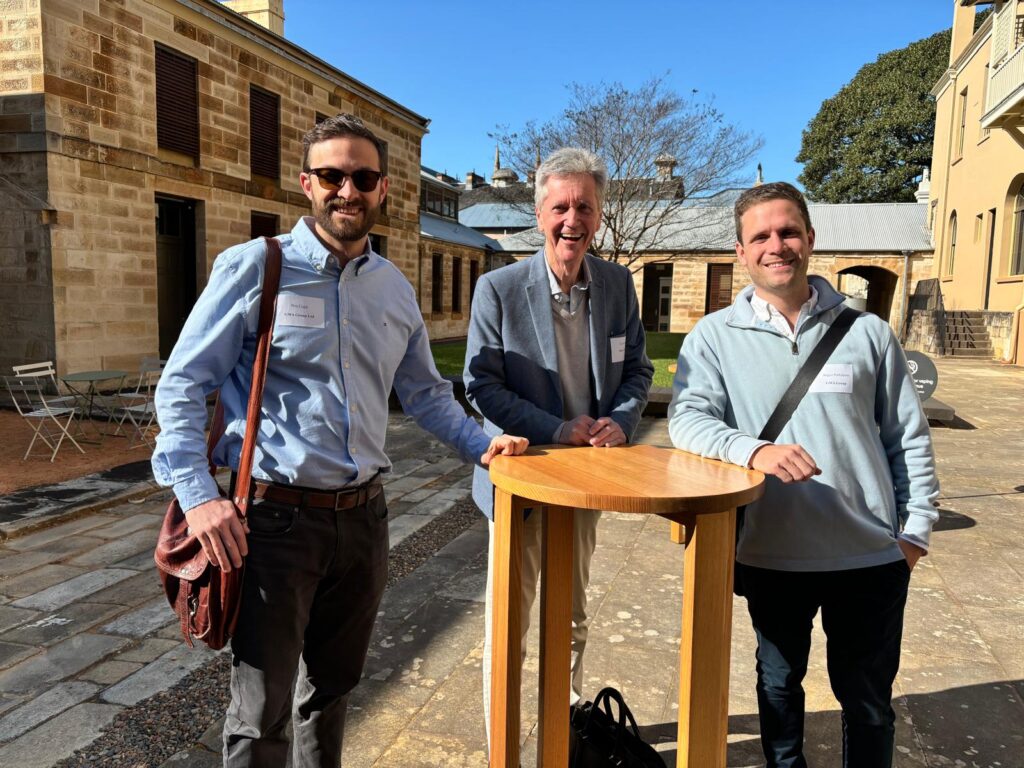
Summary
Oxford Economics Australia’s conference provided invaluable insights into Australia’s economic outlook for 2024 and beyond. With a focus on understanding global trends and their local implications, attendees gained a deeper understanding of the challenges and opportunities shaping Australia’s economic landscape with invaluable insights.
For more information about Oxford Economics Australia and our research capabilities, visit our website.
Author

David Walker
Managing Director, Oxford Economics Australia
+61 (0) 2 8458 4234

David Walker
Managing Director, Oxford Economics Australia
Australia
David is the Managing Director at Oxford Economics Australia and heads the office for Australia and New Zealand. In August 2013 he moved to Sydney to establish the firm and is continuing to grow the business in this region as well as leading key projects within Australia.
Before moving to Australia David worked as part of Oxford Economics’ business development team in London. Prior to joining Oxford Economics he worked for KPMG as a management consultant, specialising in financial risk management including stress testing and scenario analysis. During this time he was also seconded to the main Financial Services regulatory body, the Financial Services Authority (FSA). He completed his degree in Economics at Nottingham University and also studied the chartered institute for securities investment diploma.
